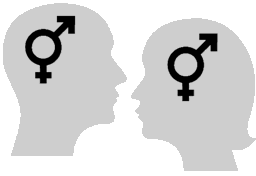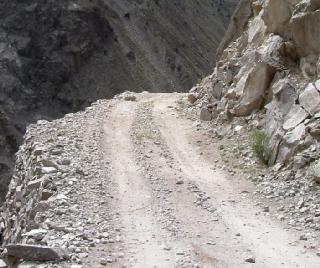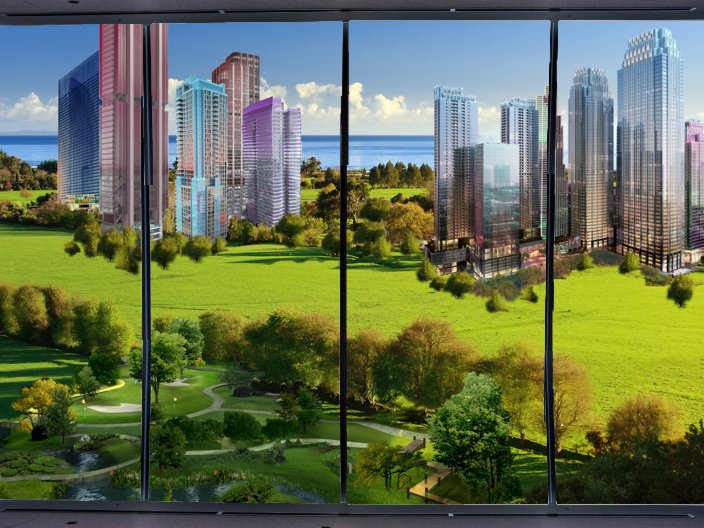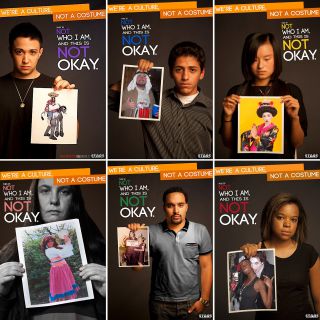Why Kastron consists of clusters
of tall buildings
Why
do we want private
yards?
Most
of us want to live in a house that
is sitting on a plot of land that we own, and the land would be
covered with trees, grass, bushes, and flowers. If we have enough money
to purchase a lot of land, we might put in creeks, ponds, or swimming
areas.
We also prefer that our plots of land provide us with what we refer to
as "a
view". That is either a plot of land in a valley that allows us to see
mountains and hills from our home, or it is a plot of land that is
higher up in elevation than the surrounding area, giving us a view of
the lower lying areas.
Why do we want a home on its own plot of land? And why
do we want views of the surrounding areas? The
answers to these types
of questions depends upon our view of life.
If you believe that human behavior is set by the environment,
you will assume that we want homes on plots of land simply
because we grew up with that culture, and we have become
accustomed to it. However,
if you believe that humans evolved
from monkeys, and that human behavior is genetic, then you will
realize that we can produce more sensible answers by understanding
animal behavior.
|
Different animals create different types of
homes for themselves. For
example, the drawing
to the right shows that prairie dogs live in a communal
network of underground chambers and tunnels.
Some birds build nests in trees, and gorillas make
a new
home on the ground every
night by using vegetation to make a comfortable "bed" to sleep on.
|
|
 |
Animals also differ in
whether each male and female couple put
their home in an isolated area away from other
animals, or whether each couple puts their home near the
homes of other couples, or whether they share a large, communal
home.
|
 |
|
 |
|
 |
|
A
male and female eagle want to be isolated
from other animals. |
|
These
pelicans put nests near those of other pelicans, creating a city. |
|
The
monk parakeets live in large, communal nests. |
If it
were possible for us to increase
the intelligence of prairie dogs, would there be a point at
which they have become so intelligent that they want to switch from
living underground in a communal
home to living above the ground
in houses that have separate, independent plots of
land,
similar to what you and I live in? Would they also want
lots of glass windows in their houses? Would they
want to live on a hill so that they can have a view of the city?
If we could increase the intelligence of the birds that build nests in
trees or on cliffs, would there be a point at which they decide that
they would rather live in houses that are on the ground?
The answer is no!
Prairie dogs, for example, do not live underground
because of stupidity. Therefore, increasing their intelligence will not
cause them to want to live in a penthouse apartment, sailboat, or a
house that is above the ground.
Likewise, reducing the intelligence of a human to
that of a prairie dog will not
cause him to want to live underground in a communal network of
tunnels with other stupid humans.
Furthermore, the environment is not the
reason animals behave the way they do. For example, prairie dogs do not
live underground because of the way their mothers
raised them, or because of poverty, bullying, or other environmental
factors. Raising baby prairie dogs in nests in trees will
not
cause them to switch to living in trees. Likewise, raising baby falcons
in underground burrows will not cause them to
switch to underground burrows.
The type of home that an animal is attracted to is determined by its genetic
emotional cravings and fears, not its intelligence or
the environment. Rabbits,
prairie dogs, and certain other animals want to live underground
because they evolved emotions that cause them to be frightened
of sleeping and raising babies above the ground. They developed an
emotional attraction
to dark, cramped, quiet tunnels, and to the lack
of
wind, temperature fluctuations, hail, and rainstorms.
If prairie dogs were as intelligent as humans, they would build higher
quality tunnels and underground homes. They would want electricity, but
they would want low
level lighting in their tunnels, not bright lights.
Why do humans prefer low level lights at night, such as when we eat
dinner? It has nothing to do with our intelligence, the way our
mothers raised us, or some Freudian
psychological issue. It is because we
evolved for a world that becomes dark at the end of the day. We want
bright lights for breakfast and lunch, but we prefer dim lights at
night, or when we want to relax. Our brain evolved to fit the
environment of
the Earth.
Humans and
gorillas have similar housing
desires
Every
night a gorilla will make a "bed"
for itself by making a small patch of land more comfortable to sleep
on. They do not want to dig a hole and sleep underground,
or climb a tree and sleep in the branches, or sleep on sharp rocks, wet
leaves, or mud.
Also, gorillas developed an emotional craving to be near other
gorillas,
so they want to put
their beds next to one another, thereby creating a "housing community".
Humans inherited those same emotional characteristics. We want to sleep
on a soft, dry, comfortable bed that is on the ground. We also want to
sleep close to other people, and among trees, bushes, flowers, and
grass.
When humans settled in the permanent cities, they built walls around
their beds to protect them from the weather, and they made beds that
were more durable and comfortable. The very first cities would have
resembled permanent campsites rather than what you and I would regard
as a city.
The reason we want to live in houses that are surrounded by trees and
flowers is because that is how our ancestors lived for millions of
years. We evolved to enjoy that environment. Our emotions give us a
pleasant feeling when we are in that
environment. By comparison, some unpleasant emotions would be
triggered if we tried to sleep in a
dark, cramped, underground burrow, or in tree branches, or in mud, or on wet
leaves.
Humans evolved to live and sleep on dry land, and among trees,
bushes, creeks, birds,
grass, butterflies, and flowers. Those aspects of nature make us feel
safe and comfortable. As a result of those particular emotional
cravings, when we build homes, offices, and factories, we design them
to simulate the environment that we evolved for. We accomplish this by
putting
real and artificial plants in our cubicles, houses, and factories. We
also put large posters on the wall that show creeks, butterflies,
birds, mountains, and forests. An example is the office (below)
in Singapore.

When
we decorate our homes, offices, restaurants, and factories, we do not
pick
items at random. Rather, we select the items that titillate
pleasant emotions, and we avoid the
items that stimulate
unpleasant or frightening emotions. For example, most of us do not
want
posters of spiders, maggots, mosquitoes, fleas, garbage dumps, dead
bodies, asphalt parking lots, chain link fences, or toilets.
Europeans
prefer forests over deserts

|
| This
home in Arizona is an example
of how most humans do not enjoy
the desert. We want to surround our home with trees, bushes,
grass, and
water.
|
The
Europeans who live in
Arizona do not
like the natural landscape of the area, so most of
them
re-create a
small portion of Europe with trees, grass, swimming pools, and
bushes. In the cities that have a shortage
of water, some people put artificial grass
in their yard, such as the home in the photo to the right.
Some people will respond that the Europeans who put grass in their
yards in Arizona do so because they were raised
with that type of vegetation, or because of peer pressure.
Some people might respond that we enjoy artificial green grass
because it feels better than concrete or dirt, but
that is nonsense. If all we want is a comfortable material to walk on,
it doesn't have to simulate green
grass. It could simulate dead, brown
grass, or sickly, yellowish
grass.
Furthermore, the material we walk on doesn't have to resemble grass
merely to be comfortable. We could create a material that resembles
sand, dirt, snow, ice, or pebbles. Or it could have geometric patterns,
abstract patterns, or photos of people or airplanes. It could also be
purple, iridescent blue, or have a red and white checkerboard pattern.
The black, rubber sheets that we put on the floor
for factory workers, cashiers, and other people who have to stand up as
they work, are much more comfortable and durable
than artificial grass, so why don't we decorate our yards with
sheets of black rubber?
The people of European descent want to surround their home with green
grass because we have emotions that are titillated by that
particular color and pattern. We are also titillated by trees, creeks,
bushes, and flowers, which is why we decorate our homes and offices
with artificial plants and posters of creeks,
rather than with artificial earthworms and posters of trash dumps.
If gophers had enough intelligence to create artificial decorations for
their home, they would want artificial roots
hanging from the ceiling, and their preferred flooring material would
be artificial dirt.
How do our genetic
differences affect our attraction to nature?
Since
our attraction to nature is genetic rather
than environmental,
and since each of us is a unique jumble of genetic characteristics,
that means that there will be subtle differences between us in regards
to which
aspects of nature we are most attracted to. Furthermore, since there is
an even greater genetic difference between the races of humans, and
between men and women, there will be even greater differences in what
the different races and sexes enjoy about nature.
For example, men seem to have a greater attraction to posters that provide
a view of large areas,
such as mountain ranges, valleys, beaches, and grasslands, whereas
women have a greater desire to display photos
of people, and photos that show individual flowers, puppies, or birds.
The races that evolved in the desert will have a greater
desire for the colors and nature of the desert, whereas the Alaskan
Eskimos will
be emotionally pleased with the nature of Alaska.
Our
cities are not
emotionally satisfying
Our
modern cities allow us to satisfy our
cravings for food,
water, and protection from storms and wild animals, but they do not
satisfy our cravings for nature. Instead, the noise, traffic
congestion, pollution,
and ugly cities are stimulating unpleasant emotional feelings.
Our craving for nature is causing us to want to get away
from the city
and put our home on a plot of land that has grass, bushes, trees, and
creeks. This in turn results in cities that are spread out over very
large areas. This increases the problems with
asphalt,
concrete, and automobiles. It also puts larger distances between us and
our friends, jobs, schools, leisure activities, and other destinations,
thereby wasting a lot of our life on traveling and traffic congestion.
We
are putting a tremendous amount of technical talent, labor, and other
resources into the production, maintenance, and disposal of automobiles
and roads. There are lots of more useful research and engineering
projects that we could be putting our talent and resources into.
Furthermore, a significant number of people have been
seriously injured or killed by
automobiles.
Our modern cities are an example of how we hurt ourselves when
we selfishly try to satisfy our emotional cravings rather than exert
some self-control and think about what is best for all of us as
a group. When everybody wants their own plot of land, we create cities
that are miserable for everybody.
Our modern cities are ugly, unpleasant, inefficient, and wasteful.
We should exert some self-control over our selfish cravings and
push ourselves into designing a city that is best for us as a
group.
However, in order to create better cities, we first need to provide our
nation with
better leadership.
The people who have risen to the top of government and businesses have intense
cravings for status, wealth, pampering, and servants. They believe
that they are special people, and that they and their children deserve
special treatment.
Their preference for a city is to provide themselves with gigantic
mansions on
gigantic plots of land, and provide their children with special
schools,
and to treat the rest of us as peasants.
A city should be designed for the human race,
not for Kings and Queens. This requires that we provide
ourselves with leaders who regard themselves as
team
members, and who regard you and me as their friends.
Kastron
will provide everybody with nature
The
reason I designed Kastron to be clusters of tall apartment and office
buildings surrounded by parks is to allow us to always be
surrounded by
nature. Kastron will also be very quiet
because the transportation will
be underground. When we walk out of our office building or
apartment
building, we will be in a peaceful, natural setting. It will not be a
"wild" setting, but I think it will satisfy our cravings for nature
much better than the cities of today.
In
a previous file I suggested that the tops of buildings be community
property rather than penthouses for wealthy people. In
Kastron, the tops of buildings, including those in the business
and industrial sections of the city, would be set aside for
social areas
and restaurants that are available to everybody. The image below is an
example of a restaurant at the top of one of the office buildings.
That restaurant provides a view of office buildings and factories, all
of which are surrounded by grass, trees, bicycle paths,
recreational facilities, and ponds for swimming and rowboats. Tables
for one and two people would be placed along
the windows for the individuals, friends, and couples who want
to watch the people outside, or the storms, sunrises, sunsets,
clouds, and stars.


Restaurants
and social areas would also
be at the tops of the apartment buildings. Of
course, there would also be restaurants and social areas on the ground
level. The basements of the buildings would be used for storage of
bicycles so that the land is not cluttered with parking lots for
bicycles.
Instead of living in houses that have
tiny patches of land, separated by fences and walls,
we would live in tall apartment buildings that are in a gigantic park
that doesn't have any fences or walls
to block our view, or interfere with our walking or riding of bicycles (the
image
to the right).
All of the land will belong to everybody. There
will no private patches of land, creeks, or
beaches. We will be able to walk and ride bicycles everywhere
in the city, and we will be able to swim everywhere we please. All of
the restaurants, social clubs, and recreational areas will also belong
to everybody. There will be
special facilities for mothers with babies, children, and teenagers,
and many of the social areas, restaurants, and swimming areas will be
restricted to adults, but there will be no "elite" class of people, or
any "peasant" class.
In Kastron, everybody will also have virtually the same home and
material wealth. Nobody will be given special treatment. I
explain the
reasoning behind this concept farther down in this document in the
section about "People Are Not Equal".
Kastron will
reduce transportation time
Another reason that Kastron consists of
clusters of tall buildings is to dramatically reduce transportation
time and burdens.
Our
prehistoric ancestors lived in a small campsite, so everybody was
within auditory range of one another. Nobody had to travel any
significant distance to get to their friends. In our modern cities,
however, we are wasting a lot of our time traveling to and
from our jobs, stores, social events, recreational areas, and
schools. We waste even more time, and suffer from more injuries and
deaths, when traveling during rain and snow storms.
Furthermore, the crime is increasing in America, which is
causing many parents to be afraid to let their children walk or ride
bicycles to school, so many parents are driving their children to and
from school. Our transportation systems, especially automobiles, are
also a significant economic burden on us.
By designing Kastron as clusters of tall buildings that are connected
by underground trains, people will waste less time on transportation
compared to cities that have tens of thousands of buildings scattered
over an enormous area. The tubes that have the trains will also carry utility
lines, so
we will not have to worry about storms knocking down power lines.
In addition, we will be able to travel to any of the clusters while remaining
underground, so during rain and snowstorms, we will not
have to carry umbrellas, raincoats, and other items. We will be able to
enjoy the rain and snowstorms rather
than be irritated and delayed by them.
|

|
|

|
|
Automobiles
are a nuisance, a burden, and a danger, even with futuristic,
self-driving technology. |
|
Utilities
will be underground
to reduce damage and to make the city more attractive. |
All of the apartment clusters in Kastron
will have schools for young children, so all of the children will be
able to get to school by walking and riding elevators. Parents will not
have to waste their time transporting their children to school, or to
recreational areas.
We also waste time on the purchase, sale, maintenance, and refueling of
automobiles. Furthermore, we allow people to be so secretive and
deceptive that buying and selling used cars, and other items, through
services like Craigslist, is annoying and wasteful because it makes it easy for people
to deceive and cheat us.
Furthermore, it is much more efficient to provide
transportation and utilities between clusters of
tall buildings, which
means that Kastron will be much less of an economic burden on the
people. The tall buildings have a higher initial cost than small,
wooden buildings, but so what? If we can afford to
give Israel billions
of dollars a year, we can afford to provide ourselves with high quality
cities.
You might find it interesting to consider that lots of people fantasize
about a fountain of youth so that they can live
longer. Although we cannot extend our life, there is a better
alternative; namely, reducing the time we waste,
such as walking through wet parking lots in the rain, and
driving through traffic.
By reducing the time we waste on irritating
activities, we are essentially extending our life, except that it is
better than prolonging our old age
because
it provides us with more time all throughout our lives.
By reducing wasted time, everybody, including children, have more time
for activities we enjoy.
Are there differences
between men and women?
Our
beliefs
about the differences between men and women has a significant
effect on how we design our culture, including our cities. Consider how
the
following four views of
men and
women
will result in four different types of culture:
|
|
|
|
|
|
|
|
|
1)
We have Genetic Differences
If we believe that there are genetic
differences in
the intellectual and emotional characteristics of men and
women, then we will design our work
environment, social affairs, schools, recreational activities, and
other culture to treat men
and women differently. |
|
 |
|
|
|
|
|
|
|
|
|
2)
We are Creations of a Supreme
Being
If we believe that a supreme
being created men
and women with different
characteristics, then we will treat
men and women differently,
but according to an irrational
religion rather than genetics. |
|
 |
|
|
|
|
|
|
|
|
|
3)
We have Minds like Clay
If we believe that
the human mind adapts
to its environment, then we will design culture in whatever
manner
we please, and we will assume that men and women
will adapt to it. The people who
have trouble adapting will be given therapy, punishments, or
"rehabilitation". |
|
 |
|
|
|
|
|
|
|
|
|
4)
We are
Unisex Creatures
If we believe that
men and women have virtually identical mental
characteristics, then we will design culture to treat men and women in
the same manner.
|
|
 |
|
|
|
|
|
|
Why do men
dominate science and engineering?
The
answer to that question depends upon our view of life.
If you believe that men and women have similar
mental characteristics, then you might come to the conclusion that men
dominate science because of our culture, such as our school curriculum,
or sexism.
However, if you believe that men and women evolved for different roles
in life, then you are likely to assume that it is because women's
minds evolved to give them a greater attraction to, and talent in,
raising families and socializing, and men have a greater attraction to,
and talent in, science, engineering, exploration, and leadership.
How do we get more girls to become engineers? The answer to that
question also depends upon your view of life. If you believe that men
and women are similar in their mental abilities, then you might support
the educational programs that encourage girls to get involved
with those fields.
Or you might accuse men of being sexists
who
have create "glass ceilings",
in which case your solution might be to fire or arrest the men who are
sexist; create educational programs to teach boys to eliminate their "toxic
masculinity"; or create laws that put quotas on businesses to
increase the number of women in their engineering and science jobs.
However, if you believe that men and women evolved for different roles
in life, and that our mental
characteristics are genetic and unalterable, you
will assume that there is nothing we can do to
create more female engineers or scientists, so you will support a
culture that allows children to pursue the jobs that they are
interested in, and you will not want schools or society to waste time
or resources on attempts to make more girls become scientists,
engineers, or technicians.
Furthermore, you will not support the educational programs that accuse
boys of having "toxic masculinity", or of being sexist, or of creating
"glass ceilings". You will regard those accusations as insulting,
slanderous, and idiotic.
Should boys
be forced to play with dolls?
The
people who believe either the unisex
or clay theory will want to treat boys and girls in
the same manner. They will force
the Boy Scouts to accept girls, and they will support the recent
lawsuit from some women to force
fraternities at Yale to accept women. By comparison, the people
who believe in genetics or religion will allow boys and girls to
have separate activities, bathrooms, and
organizations.
What
is the correct way to raise boys and girls? That depends upon your view
of what a human is. The reason people cannot agree on these and other
issues is because we have contradictory views on what a human is. This
results in us building our theories on incompatible foundations.
If we follow an unrealistic
fantasy of what humans are, we will torment
ourselves and one another with an unrealistic culture.
For example, consider the parents who
refuse to believe that men and women are genetically different. When
their daughter is playing with a doll, or their son is playing with a
toy truck, they may force the boy to play with a doll, and
force the girl to play with a truck. Those parents may also
force their daughters to learn science and engineering, and
force their sons to
learn about taking care of babies.
If it were true that
humans were unisex creatures, or pieces of clay, then putting pressure
on the boys and girls to behave like unisex creatures would be successful.
However, if boys and girls are genetically different, we will torment
the children because we would be forcing them to become something
they cannot be and don't want
to be, and we will torment ourselves because all of
our attempts to alter their behavior will fail.
We will further torment ourselves and the children if we believe that
punishments or rehabilitation
programs will force the children to
become unisex creatures.
By comparison, if we believe that boys and girls have genetically
different mental and physical characteristics, then we will
allow every boy and girl to behave in whatever manner is natural to
them. We will realize that due to genetic variations, some
girls
will be more masculine, and some boys will be more feminine, and we
will not try to force those unusual boys and girls to become "normal".
We will also realize that genetic variations will cause homosexuality
and bisexuality. Therefore, instead of punishing or rehabilitating the
unusual children, we
will accept them for what they are.
Why
do we
expect women
to smile?
The
gymnast, Simone Biles, made the news
for not smiling
enough when she was a contestant in the television program Dancing
with the Stars. Her response
was "Smiling doesn't win you gold
medals".
Men are never criticized for not smiling enough, but women are expected
to smile, even during intense athletic events. Why do we expect women
to smile so much more than men? Why doesn't Simone Biles smile
as much as other women? The answer to those questions depends upon your
view of men and women.
If you believe in either the unisex or clay
theory, you will assume that we expect women to smile more often
simply because that is our culture, and if our culture had
expected men to smile more than women, then we
would expect that.
However, if you believe that men and women evolved for different roles
in life, then the reason women smile more often is
because they evolved to be mothers rather
than leaders,
explorers,
or team members. Women are genetically designed to be more
submissive and less aggressive, and smiling is one of the techniques
humans use to show submission and nonaggression.
In addition to evolving for different roles in life, we
also evolved the expectation that the other sex
will be in that particular role. In other words, we are genetically
designed to expect men and women to behave in a
certain
manner. Our brains are designed to expect women to display expressions
of submission more than men, and to be less aggressive. We become upset
when men and women do not behave in the manner that we have been
designed to expect, resulting in our scolding them for not behaving in
the "proper" manner.
Why
doesn't Simone Biles smile as often as other women? The answer
depends upon your view of humans. If you believe in the clay or unisex
theory, you will assume it is because of her childhood, or some
interaction between her Ego
and Id, but if you believe in genetics, then you
will assume it is because of subtle differences in the genetic design
of her brain and/or body. For example, she has
ADHD, which many
athletes suffer
from. It is also possible
that she is more masculine in certain traits.
Why
do adults
often disregard a girl’s
complaint of pain?
Some
social scientists observed
the reaction of adults to children who complained about pain, and they
noticed that adults were more likely to disregard the complaints from
girls. Why would we be more likely to
believe a boy who complains
about pain? Furthermore, the scientists pointed out that women
were
more likely than men to disregard a girl's
complaints. Why would
this be?

The
answers to those questions depend
upon our view of humans. The
social scientists who did that research don't believe in genetics, so
Brian Earp, the primary scientist, said that it is a "big mystery" and
“We’re spitballing to come up with a
reason.”
Incidentally, the word "spitballing" gives me images of people who are
spitting, which I consider unpleasant since his
document has
nothing to do with spitting. The words you choose determines whether
people enjoy listening to you,
or are repelled by your remarks. The word
"spitballing" is not in a "normal" dictionary. Do not
pick words from the SCIgen
Dictionary.
Anyway, if we believe in genetics, then one possible explanation for
why women are more likely than men to disregard the complaints from
girls is because women inherently know that a lot of their complaints
are merely to manipulate people.
Since women are naturally more submissive, they are less likely to grab
at what they want and more likely to beg
or manipulate for it.
Men are more likely to grab at or steal what they want, and
even kill
people for
it.
Why
is there so much
emphasis on a woman’s
appearance?
Some
feminists complain that men put too
much emphasis on a woman's
visual appearance. The author of this
article describes it as: "a woman’s
worth is tied largely to her physical appearance." Is this
true? If so, why would we care so much about a woman's appearance
but not a man's appearance?
The people who base their theories on the clay or unisex viewpoint will
likely
produce an explanation that is as confusing and vague as those from the
psychologists, such as this
one. Evolution and genetics provide a more sensible reason.
Specifically, the prehistoric tribes that dominated the others were
those in which the men preferred visually attractive women. This leads
to the question
of how that particular sexual characteristic
provided a tribe of prehistoric people with an advantage
over the other tribes.
I discussed this issue in other documents, such as here.
To summarize it,
during prehistoric times, the women who were the cleanest and most
attractive were in the best genetic health. The sloppy, dirty,
filthy women were genetically inferior.
Therefore, the prehistoric men who
did not care much about a woman's appearance would have been just as
happy with a filthy woman, and the end result would have
been inferior children, and his wife would have been an
inferior
mother. The men who were most successful in passing
on their genetic characteristics were those who developed a
sexual attraction to the clean, attractive women.
Why don't women care much about the physical appearance of a man? The
reason is because if prehistoric women
picked men according to their visual appearance, they would
often end up with a man who could not properly feed or protect his
family. The women who were most successful in raising families were
those who were titillated by the men who were capable of
providing her with lots of gifts of
food and tools.
Most people are misinterpreting their emotions.
For example, men assume that they enjoy pretty women because the women
are "pretty". However, women are pretty only to the creatures who have
a certain genetic emotional attraction to a certain
type of
visual appearance. To a monkey, or an alien in another solar system,
human women are not necessarily pretty.
Women also misinterpret
their emotions. For example, they assume they like to spend hours a day
grooming themselves because they "enjoy" being clean and attractive,
but the reason they enjoy being clean and attractive is to
appease men, not because it is fun to spend
hours a day on grooming chores.
Many
of our emotional feelings are misunderstood. An example that I
mentioned in previous documents is that we are disgusted by the smell
of our poop, and this causes people to assume that poop is horrible.
However, our poop is a valuable indication of our digestive system,
health, and diet. There is nothing disgusting about it.
Rather, we developed an emotion that causes us to be disgusted by it in
order to keep us away from it.
Likewise,
men misunderstand their craving for sex. They assume they want sex
because sex is fun, but in reality, this craving is simply nature's way
of "tricking" us into getting involved with a female, getting her
pregnant, and remaining with her while she raises lots of children.
Getting
back to the issue of women who complain that men put too much emphasis
on a woman's visual appearance, it is idiotic for
women to complain
about this because it is not something men choose to do. Rather, men
have this characteristic because we evolved from monkeys.
The competition for life caused men to be attracted to clean,
well
groomed women, but that
characteristic is not "sexist".
It is simply the way the male animals evolved.
Women
put more emphasis on man's status and material wealth than
his
physical appearance, but women are not better
than men simply because they care more about a man's material wealth
than his visual appearance. Rather, women are merely different
because they
evolved for a different
role in life.
Some
women boast that they are less promiscuous than men, but that
is
not because they are "better" than men. That is simply another
characteristic that developed from the competitive battle for life.
Some
men complain that women put too much emphasis on a man's wealth
and status, and they insult some women as golddiggers, or as arrogant
bitches who believe that they are too special to accept a man who has
an "ordinary" income. However, this is simply the way women evolved. It
is idiotic to
complain about it.
Men and women are tormenting one another when we
complain about one
another's characteristics. Neither
of us chose to have our particular
desires. We inherited these emotional characteristics from the monkeys.
Both men and women could be described as victims
of the chaotic battle for life. The only way to improve upon this
situation is for us to restrict reproduction so that we can give men
and women better emotional characteristics.
We will
also torment ourselves if we use the sour
grapes trick to convince ourselves that we don't
want a spouse. We will not improve our lives by hiding
from our problems. We will have a better life when we
face reality and admit that we have lots of genetic
cravings, such as a craving for a spouse. We need to deal
with our cravings rather than pretend we don't have them.
We must also suppress
our urge to whine, hate,
pout, and have temper tantrums. It is important to understand that our
desires to pout, hate, whine, and ignore problems is because we inherited
those reactions from animals. Since animals cannot
think, they react to problems by running away, or by becoming angry. We
should face the evidence that humans react to
problems just like the stupid animals.
We
need use our self-control to push us into discussing our
problems,
and experimenting with solutions. We should put some effort
into understanding
the
differences between men and women, and experimenting
with more appropriate marriages, work environments, and other culture.
For example, as I have suggested in other documents, we should prohibit
businesses from titillating the sexual cravings of men, and
from titillating women with romance novels, babies, and wedding
fantasies. I
think businesses are encouraging boys and girls to develop unrealistic
goals and expectations.
However, we are not
going to get an understanding of our characteristics, or experiment
with better culture, with the type of
people we are allowing to dominate our world today. The Google
executives, for example, have already fired
an
employee for
expressing the opinion that there are differences between men and
women. We cannot improve life when we allow
ourselves to be dominated by people who suppress differences
of opinion.
Unless we put better quality people into
leadership positions, nothing
is going to improve. Can you
motivate yourself into helping to provide the world with better leaders?
Why
do male humans
play in mud and climb mountains?
A lot
of young boys enjoy playing in the
mud, creeks, and water puddles,
and some adult men enjoy risking their health and
life by going on
"adventure trips," such as climbing a mountain, hiking in an isolated
wilderness, or riding a kayak in a turbulent river.

In a
free enterprise system, businesses
exploit these
desires. For example, businesses offer a variety of Mud
Festivals.
Although the
photographers give more attention
to the women, men have much more of an attraction
to the mud.
Why do boys like to play in the mud more than girls? Why do
men enjoy "adventure trips" more than women?
The answer to these questions depends upon your view of humans.
If you are religious, you will assume it is because God decided to give
us those qualities. If you believe in the clay theory, then you might
assume that it is because of the manner in which parents are raising
their children. However, if you believe that humans are a species of
monkey, then you
will realize that we can understand this behavior by observing
the animals.
In this
and this
document, I described some of the characteristics of falcons in this
PBS
documentary. To summarize, a male falcon spends his life catching small
animals and giving them to his female partner, who spends her life
sitting on a nest and taking care of her babies.
Why do the male and female falcons spend every day in that "sexist"
manner? Why don't they behave in a unisex
manner by sharing the chores equally? Why don't the females hunt half
of the time, and let the males spend half of their time on the nest?
If you believe in genetics, then they behave in that manner because
they want to behave like that.
And the reason they have chosen that sexist life
is because the DNA of a falcon causes the male and female brains
to
develop slightly different circuitry, which gives them slightly
different emotional feelings.
Every animal has the freedom to do whatever he wants to do.
Therefore,
when an animal does something, it is because he has chosen to
do it. Since the animals do not think very well, most of
their decisions are the result of their emotional fears and
cravings rather than their intellect.
We
cannot
force an animal to do something that he does
not want to do
Some
people may respond that people are
regularly controlling animal
behavior, such as when we force a dog, horse, or other animal to
perform tricks in a circus, or when we force an ox to pull a plow on a
farm. However, those animals are not truly forced to behave in a
certain manner. Rather, the humans are simply exploiting the emotional
cravings of the animals to manipulate their desires.
For example, by offering food to certain animals, such as seals,
and by offering food and attention to the social animals, such as dogs,
the animals learn that they can receive emotional titillation by doing
something. They choose to do what we want them to
do because they want the reward,
not because we have altered their mental circuitry, or because we have
forced them into doing it.
We
cannot alter the behavior or mental
circuitry of an animal. All we can
do is learn about their emotions, and then exploit
their cravings and fears in order to manipulate them.
For example, the social animals respond to intimidation techniques
because they have emotions that cause them to react to glares, facial
expressions, and being bit and kicked. Therefore, humans can manipulate
the social animals by yelling at them, glaring at them, and kicking
them. However, the animals respond to that intimidation because they
want to.
The social animals are easy for us to manipulate because they are
designed to
accept a
submissive role. Although they have a craving to be the leader,
they also have emotions that cause them to become submissive when
they are intimidated
to a certain extent, or kicked hard enough.
We are not altering the brain circuitry of dogs when we train them to
be pets. We are simply exploiting their emotional characteristics.
Some people might respond that pet dogs are much less violent than wild
dogs, and they may claim that it is because humans are raising them in
a
loving, peaceful environment, but that is not true. Pet dogs are less
violent because people have been killing the violent pet dogs for
thousands of years, thereby allowing only the peaceful dogs to
reproduce.
Humans have been deliberately and inadvertently restricting the
reproduction of pet dogs, and this has resulted in a wide variety of
new races of dogs, and it has resulted in dogs evolving to become
more peaceful and more interested in forming close relationships with
humans.
Since the social animals can be manipulated with intimidation
techniques, will they work
with humans? Yes! Actually, we are already using these techniques all
the time. For example, businesses offer us a salary, retirement
benefits, and medical benefits in order to entice us into becoming one
of their employees, which is the same as offering fish to a circus
seal.
Crime networks use this technique also, but we refer to it as "bribery"
if they want us to do something that is illegal.
Governments also use these techniques. Specifically, they try to
intimidate us into following the laws by threatening us with jail,
fines, and other punishments.
However, as with animals, we cannot force people to do something they
don't want to do. Everybody is free to do as he pleases. If a person
does not want to work, businesses cannot force him to take a job. If a
person does not want to follow a law, the government cannot force him
to do so. If a person does not want to accept a bribe, a crime network
cannot force him to take it.
Some people might respond that a crime network can indeed force us to
take bribes and commit other crimes if the crime network is so large
and powerful that they can convince us that we have no other option.
However, that is not exactly true. A person will submit to becoming a
blackmailed puppet, or a slave, only if he chooses to do so. History
has examples of people who preferred to fight the crime networks and
slave owners rather than submit to them. Some of those people ended up
being killed by the crime network, but that was because they were
willing to risk their life in order to avoid becoming a victim of the
crime network.
When people submit to crime networks, it is because they have chosen to
submit. They are behaving like an animal that has been kicked so hard
that his emotional craving to submit to his leader is triggered, and he
gives up the fight. However, if a person intensely despises the idea of
becoming a blackmailed puppet, or if he is abnormally arrogant and
demanding, then he will continue fighting.
We cannot force people to do what they do not want to do. The reason
crime networks can easily intimidate people is because humans
and other social animals are designed to give up a
fight before they are badly hurt, and become submissive.
The social animals do not
fight to the death for status or females.
They usually become submissive after just a few harmless kicks and
glares.
They do not have a desire to fight to the death because if they were to
kill one another, they would destroy their group. The fights between
animals are attempts to intimidate one another, not
kill one another.
That is why their fights are so noisy, and why they show their teeth.
Their fights seem dangerous, but they are usually harmless, and the
animals give up easily.
The crime networks try to manipulate us with the same techniques that
animals use.
Specifically, they
try to make themselves appear powerful in order to intimidate us into
becoming submissive to them. If people could find the courage to stand
up to the crime networks, the crime networks would leave us
alone. Crime networks have much more to lose from a fight than the
people they are trying to bribe and blackmail. Crime networks require
secrecy, and they depend upon people who are easily intimidated.
Therefore, if more people would expose and resist the crime networks,
we could destroy them.
The entire nation of Germany is frightened to talk about the world
wars, the Holocaust, Anne Frank's diary, the 9/11 attack, and the
Apollo moon landing. If the German public would find the courage to
expose these crimes, what would the Jews do? The Jews could not
possibly arrest everybody in Germany for Holocaust denial,
anti-Semitism, or "fake news".
Male
and female falcons have different
emotional circuitry
Getting
back to the issue of falcons, they have "sexist" roles because
the males and females have slightly different emotional characteristics.
Since those characteristics are genetic, there is nothing
we can do to change their behavior. There is no way to raise baby
falcons that will cause the males to want to stay home with the babies,
and cause the females to hunt for animals. Changing their behavior is
as impossible
as changing a dog into a cat.
The brain of a male falcon has been designed
with an emotional
craving to
find a female and pamper her with food. He
also has an emotional craving to fly around for hours and search for
small animals to capture. He does not have a desire to walk
around while
looking for animals, or swim in water to catch
fish, or fly around to
find fruit or insects.

|
| The
male Falcons are titillated by
giving food to the females, and the females
are titillated by feeding her babies. |
The
brain of a female
falcon, by
comparison, has been designed with a craving to sit in a
nest, and a craving to
find a male who will pamper her with food. She also has emotions that
are titillated by eggs and baby falcons.
When a female
falcon sees the open mouth of a baby falcon and
hears
certain types of crying noises from the baby, some circuits in her
brain are triggered to give her an unpleasant
feeling. This causes her to react by trying to stop
those images and sounds by putting food into that mouth.
This causes
the baby to close his mouth and become quiet, which titillates her
in a pleasant manner. She enjoys quiet babies, and
is upset by crying babies.
How
can falcons help us
understand humans?
It
is fairly easy to realize that the "sexist" behavior of male and
female falcons is the result of their genetic emotional cravings, but
how do we
apply that knowledge to human behavior? One technique is to imagine
what would happen to falcon behavior if their brains had a dial that
allowed us to turn up their intelligence to the
level at which they can
speak a human language, and can build cities for themselves.
What type of city would falcons create? What type of recreational
activities would they enjoy? What would their social environment be
like?
In order to live in a city, the falcons would have to create farms that
produce and distribute meat throughout the city. However, the males
would continue to have a craving to fly around for hours and hunt for
animals, and to give food to the females, and the females would
continue to have cravings to sit on a nest with their babies and be
given food by their male partner.
Their emotional cravings would cause them to create a "sexist" society,
rather than a unisex society. The male falcons would leave their home
every day to work, and bring meat home every evening to their females,
who would stay home with the children.
However, the craving that the males have to hunt animals would not be
satisfied by purchasing meat from a retail store. Therefore, they might
decide to set up an area outside the city for hunting. Since they would
not need to hunt, they would design the hunting area to titillate their
emotional cravings, rather than create a "real" hunting area. For
example, if there were not enough wild animals in the area to allow
hunting, then they would breed animals and release them into
the hunting area.

Their
hunting activities would be for
emotional stimulation, not for necessity, so it
would be much easier, more relaxed, and more
entertaining.
The wealthy falcons might arrange for hunting activities that are
similar to the foxhunting activities
of the wealthy British, in which they pay servants to wander
around in the forest to provide expensive drinks in expensive glasses,
and while everybody is wearing expensive clothing and jewelry
that
is inappropriate for a forest.
Since males are competitive, there would eventually be a point at which
the male falcons start competing with one
another to hunt. Their competitive activities would slowly develop into
a variety of different sports.
For example, instead of hunting a real
animal, they may place some simulated animals in bushes, and then
compete to see who can find the most in the shortest period of time.
They might also develop a variety of sports contests in which they show
off their flying abilities, such as flying through narrow gaps, or
flying through obstacle courses.
Once a sport develops, the competitive nature of the males will cause
some of the falcons to practice for the sport.
Eventually they would develop exercises
to help their wings become stronger. When they discover hormones and
steroids, some of the Falcons will use those drugs to develop
muscles that are absurdly large.
Businesses would exploit the
situation by providing gyms so that the males can exercise and train.
Some falcons would hire coaches to help them train. Businesses would
also build stadiums for sporting events so that they could charge
spectators a fee to watch the sports, and to sell snacks, such as mice,
to the spectators.
Businesses would also exploit the children by
providing them with sports activities and equipment. For example, they
might provide the young male falcons with small, stuffed animals to
hunt, and they might sell them inexpensive, plastic pylons so that they
can set up an obstacle course to fly around.
The businesses and
schools would also arrange for competitive sports events for
the
children. The mother falcons would become "hunting moms", which would
be analogous to the "soccer moms" who take their children
to sports events every week.
Sports
would not completely satisfy
the falcons
Although
the sporting events would
titillate their craving to hunt, it
would not be exactly
what their emotions want because the sporting events would be crowded
and noisy, and the business activity would be annoying. Some of the
falcons would want to get away from the crowds, the noise, and the
concession stands, and hunt in a more "natural" manner
by flying
around for hours in quiet, uncharted, isolated areas and looking for
wild animals.
Businesses would exploit those falcons by offering
them "adventure trips". For a fee, they would take the falcons to
isolated areas where they can spend the day, or several days,
struggling to survive by searching for and capturing wild animals.
The
adventure trips would give their emotions the type of stimulation that
they had evolved for, thereby providing them with an intense emotional
pleasure that they could never experience from the city, or from the
sports events.
Through the decades, the adventure trips would
evolve into increasingly difficult adventures, such as flying around
the tops of mountains, where the weather conditions are dangerous and
food is scarce. Those adventure trips would be so brutal that some of
the falcons would die, and others would suffer serious injuries. This
would cause some of the falcons, especially the females, to
ask
them why they do it.
Why would a falcon want to take the risk of
dying on an adventure trip? Those falcons would assume that the reason
they want to do it is because it is "exciting" to put themselves
through a difficult and challenging test of their
abilities. In
reality, the reason they would want to go on those adventure trips is
because their city does not satisfy their
emotional cravings.
Their city would provide
them with food and other comforts, but it would also irritate them
with noise, overcrowding, crime, pollution, and the
ugliness
of concrete and asphalt. Their city would satisfy some of
their
emotions, such as hunger, but other emotions would be unfulfilled, such
as their cravings to fly above trees and bushes in a quiet, secluded
area. This would result in many of the male falcons
leaving the
city on the weekends so that they can fly over trees and bushes, and
search for animals.
By
comparison, the female falcons would prefer remaining in their home
with their children. They would not have strong cravings to leave the
city and fly around for hours.
Humans
are similar to falcons
Earlier
I mentioned that humans are
similar to gorillas, and now I am saying we are similar to falcons.
Which is it? It is both.
Humans evolved from some type of ape, which evolved from some other
creature, and so on. We are not
unique. We share a
lot of the characteristics that we see in other animals because we
inherited our qualities from animals. The way humans make beds and cities is
similar to the way gorillas
sleep at night. We also have characteristics that are similar to those
in falcons, cats, dogs, and elephants.
If
you can understand why a male falcon would be unsatisfied with
a city, then it should help you to understand why male and female
humans are behaving as we do, and why I designed Kastron as I did.
The prehistoric men who were the most successful in raising children
were those who had an emotional craving to get out of the
campsite
every day and search for food and make tools. Those men did not have a
strong attraction to babies or chatting with women. Their emotions gave
them a preference to get away from the campsite and walk around in
nature. They enjoyed the trees, bushes, creeks, mud puddles, rain,
clouds, and sunshine. They enjoyed walking around the forests,
grasslands, and mountains. They enjoyed the quiet, isolated conditions.
They enjoyed looking out onto grass plains, mountains,
ponds, and clouds.
Many people realize that animals evolved to "fit"
their particular environment, but it is more useful to describe
animals as evolving to "enjoy" their particular
environment. The male falcons, for example, evolved to enjoy flying
around and looking for animals. They do not suffer
when they hunt.
Likewise,
reindeer enjoy snow and cold temperatures, and they
enjoy
searching for and eating lichen. They do not shiver from the cold, or
fantasize about eating bananas or mangoes. They enjoy their climate and
foods.

Humans
would suffer tremendously if our
feet were wet and cold for hours every day, but ducks do not
suffer from it. Ducks are not merely tolerating
wet, cold feet, either. Rather, they enjoy it.
The prehistoric people who were living in cold, wet environments
evolved to enjoy
that climate. They prehistoric people
who were living in hot, dry,
deserts, evolved to enjoy those conditions. The people in Scotland
evolved to enjoy weather that is more brutal than most of
Europe,
and the people in the northern parts of Scandinavia and Russia evolved
to enjoy a very cold, dark winter.
The prehistoric men who were
the most successful at raising children were those who enjoyed leaving
their campsite every day to wander around in nature and search for
food. They wanted to get out of the campsite, get
away from the women
and children, and look for food. They were not suffering
when
they were hunting, not even when the area was covered with snow, and
all they had for clothing was a few strips of fur and leather. Rather,
they enjoyed nature and one another. They were
capable of
sleeping in the snow, and they enjoyed it.
Some
people might respond that there are lots of people in northern Europe
and Russia who dislike the cold weather, and that virtually
everybody would die if they had to sleep in the
snow. However,
the reason people today do not enjoy cold weather is because,
for
the past few thousand generations, people have been degrading
genetically.
For example, by providing children with fur coats, campfires, and warm
structures to live in,
the children who would have died during the cold winters ended up
surviving and reproducing, thereby creating more children who could not
handle the cold weather.
Every generation is more physically and
mentally defective than the previous generation. If this
continues, everybody will eventually be so defective that everybody
needs constant medical help and special diets, and everybody will have such a weird personality that
nobody will be able to form a stable friendship.
Getting back to
the similarity between humans and falcons, the men
who evolved
in
an environment that was wet, muddy, and cold evolved to enjoy
those conditions. Those men enjoyed
the mud,
trees,
mushrooms, rain, fog, hail, creeks, frogs, clouds, birds, lightning,
and crusts of ice on puddles. They regarded nature as beautiful, not
miserable, ugly, frightening, or disgusting. They developed activities
for
their environment, such as swimming, making snowmen, and making mud pies.
They enjoyed wandering around for hours in cold and damp forests and
grasslands in order to find food and water.
By comparison, the prehistoric women
evolved to enjoy spending each day in a campsite with other women and
children. Every woman enjoyed being her own boss, but
they wanted to be near one another. Women do not
enjoy being isolated
and alone. This is why many women, when they are home alone, will turn
on a television, or have long telephone conversations of
nothing
of importance. They will even enjoy a phone conversation when it goes
silent for long periods of time because the image in their
mind of
the person they are talking to will satisfy their craving to be near
other people.
Women did not develop a desire to wander around in
nature and search for animals. As a result, they consider hunting to be
a chore, not a recreational activity. Women are much happier than men
to spend their life inside their home because they did not develop
a strong attraction to nature, or to spend hours wandering around in
nature.
Most women have noticed that sunsets can be
attractive, but most women do not consider "ordinary" clouds to be
beautiful decorations in the sky, and even fewer
women enjoy rain, hail, and snowstorms. Men enjoy nature more
than women do
because we evolved to spend most of our life in nature.
Women evolved to be mothers, and so they have
strong attractions to children and people, and men evolved to be leaders
and hunters, so we have a strong attraction to
nature, and a strong desire to compete for status.
Why do men climb mountains?
When
George Mallory was asked that
question in 1923, he said, "Because
it's there." George Mallory did not understand his emotions,
so he did not know why
he wanted to climb mountains. Asking a man why he wants to climb a
mountain, take a walk in a forest, play in the mud, or
go snorkeling in a coral reef is like asking a woman why she
wants to sit at home and spend
hours with cosmetics, jewelry, and babies.
When a woman is asked
why she enjoys cosmetics, she will respond that she "enjoys" looking
pretty. A
more accurate explanation is that she is trying to satisfy
an emotional craving. We evolved to enjoy
our environment, and that includes our social
environment. Women have a craving to look pretty, but why? The reason
is to attract and hold onto a man, not because it
is enjoyable to spend hours a day on grooming activities.
When a man is asked why he wants to spend time in nature, he will
respond that it is because he "enjoys" nature, but a more accurate explanation is
that he is trying to satisfy
an emotional craving. Why would a man have a craving for
nature? It is because men evolved to enjoy their environment. For
millions of years, prehistoric men wandered away from the
campsite every morning to look for food, water, and tools. They spent
the entire day in nature. The men who were the best adapted to
that lifestyle were those who developed an enjoyment
of nature.
Men evolved an
attraction to the
mountains, forests, creeks, clouds, rainstorms, hail, snow, bushes,
flowers, frogs, lizards, mushrooms, and birds. Unfortunately, our
modern cities do not allow us to satisfy our craving for nature. This
causes men to want to get out of the city, and get
away from the concrete, noise, overcrowding, and pollution. We want to
be among trees, grass, ponds, birds, sunshine, and clouds.
By designing a city as I've suggested for Kastron, I think we can
satisfy a man's craving for nature. However, simply surrounding
ourselves
with nature will not be enough to truly satisfy our
emotional desires. We also need to alter our economic system so that we
can prevent businesses from manipulating and exploiting
us. Businesses are currently causing us to
desire activities and products that we don't actually need
or benefit from. Businesses are also exploiting our competitive nature
and causing men to compete for senseless goals, such as climbing the
tallest mountain. Until
we stop this exploitation, we are not
going to provide ourselves with a pleasant environment.
If you have trouble understanding this concept, consider how it applies
to children.
Businesses in a free enterprise system are competing to sell products
to children, and this is causing the businesses to manipulate children
into desiring certain sports items, candy bars, sodas, clothing items,
and toys. Businesses are not improving life for
children. Rather, they are causing the children to develop desires for
things they don't need. We ought to regard the free
enterprise system as making life worse for us, not
better.
How
can we provide children with a pleasant life when businesses are
constantly competing with one another to give children irrational
cravings? Furthermore, some businesses are stimulating the sexual
cravings of boys. Who benefits from that?
We must
stop the abuse by the free enterprise system in order
to provide
children with a pleasant life. Businesses should not
be allowed to manipulate or exploit children.
Many adults can understand that businesses are causing children
to develop idiotic cravings, but they cannot see that adults
are also victims. Most adults do not want to look critically at
themselves, or consider the possibility that they are being manipulated
and exploited, just like the children.
Businesses are routinely
manipulating adults, and our culture. They are causing adults to
develop irrational
cravings for material items, wedding ceremonies, recreational
activities,
adventure trips, vacations, and funerals.
Furthermore, religions, charities, and other groups are also
trying to
manipulate our desires and attitudes.
We cannot create a truly pleasant environment for ourselves when we
have thousands of organizations competing to titillate, stimulate,
exploit, and manipulate us.
Some of the problems that businesses are causing are:
1)
Businesses are causing us to develop idiotic goals
The
businesses that offer vacations, adventure trips, and cruises are
competing to grab our attention, and one of their methods is to make it
appear as if their particular destinations will provide us with the
most excitement. They boast that they will take us to the most
spectacular nature, and the most exciting cities.
In reality, nature is beautiful everywhere on the Earth, except where
humans have destroyed it. To
claim
that one part of the Earth has better nature than another is as idiotic
as
claiming apples are better than oranges, or that steel is better than
aluminum. The businesses are promoting a stupid, detrimental
view of the Earth.
In regard to cities, all of them are disgusting.
Paris, for example, is not the "city of romance". It
is just another chaotic,
overcrowded, filthy, crime-ridden, corrupt, noisy city, and it is
becoming worse every year as a result
of uncontrolled immigration and reproduction.
Businesses are causing some people to set a goal of visiting certain
areas of the Earth, or certain cities, but it is idiotic
for a
person to spend years of his life fantasizing about traveling to
some "special" area. Contrary
to what the businesses tell us, we
do not have to travel long distances or spend lots
of money on a
vacation. It is actually possible to enjoy a vacation while remaining
home! That type of vacation allows us to avoid the problems and stress
of airports, hotels, and rental cars.
Incidentally,
this brings up an important issue that I've mentioned before.
Specifically, the reason most people do not want to take a vacation in
their own city is because our cities are disgusting. We want to get
away from our city, but the grass is not greener in another city. All
of our cities are disgusting, and all of them are getting worse.
This brings up another aspect of Kastron.
Specifically, my recommendation is to put more of our resources into
our cities. We should make the buildings, footpaths, parks, swimming
areas, and bridges more beautiful, and we should make the
transportation systems more quiet, attractive, and dependable, and we
should provide the city with so many recreational and social activities
that we can always find something to do. Our city should be so
enjoyable that we want to spend our leisure time in our own city with
our friends, rather than fantasize about getting out of the city.
2)
Businesses
encourage us to focus on winning.

|
| We are wasting our life when
we focus on winning and trophies. |
Men
have strong cravings to compete
with one another. In a free enterprise system, businesses exploit this
characteristic, and one of the resulting problems is that they are
inadvertently encouraging people to focus on winning
competitive events, rather than enjoying it, or getting involved for
some other reason, such as exercise or socializing.
For
example, by boasting that their particular footballs, golf clubs,
cleats, or shoes will help us to win our competitive events, they are
emphasizing the winning of the event. Likewise,
when they boast
about their "new and improved" items that will give us a "competitive
edge", they are encouraging us to focus on winning. The businesses that
produce trophies are also encouraging the winning of events by making
it appear as if the people who collect the most trophies are having the
most exciting life, and admired by the most people.
The businesses that arrange for competitive events in which there are spectators
are encouraging the spectators to also focus on the winner of the
event. There is so much emphasis on winning that some spectators
become angry or get into fights over decisions by the referees, and
many spectators become upset when their team loses.
The athletes
who make a living from competitive sports have a strong
incentive to win the events, but it is ridiculous for spectators
to get emotionally involved. From the point of view of society, the
spectators who become upset over sports events are fools who are
tormenting themselves,
and the spectators who get into fights are destructive. They should try
to enjoy the event and the people, rather than become angry and
miserable over who wins.
It is especially idiotic to encourage people who are having casual
recreational
events to be concerned about winning. If
they focus on winning, the winner will get some momentary
titillation, but the people who lose might become frustrated, angry,
envious, or sad. The losers, or their parents, are especially likely
to become upset if they spent a
lot
of time and money on equipment, clothing, and training.

If we
are living in a city in which we regard the other people as our friends,
rather than as strangers or enemies, then our recreational events will
be with friends. What is the benefit to a group of friends
when we
regard one friend as a winner and the others as
losers?
From
the point of view of a group of friends, it would
be
better if they exerted some self-control to reduce the emphasis on
winning.
We should focus on enjoying
life, nature, and each other, not on winning a meaningless
event. We enjoy competing, but we should design competitions to be
beneficial.
For example, we should design competitive recreational activities to
inspire people to get out of their house and get some exercise, meet
some people, and enjoy nature. We should focus on enjoying life and other people, rather than focus on winning
and collecting
trophies.
Our
view of life has a significant effect on our culture. I
suggest we think of ourselves as
living among friends,
rather than
living among enemies that we must defeat. We should think of ourselves
as a member of a team, not as monkeys who are in a
battle for dominance.

Years ago I suggested
that
we should stop giving out trophies,
or switch to giving out something more beneficial, such as a carved
watermelon for everybody to share. I think that will help us focus
on enjoying life rather than on winning meaningless events. Of course,
we will never know what provides us with the best life until we find
the courage to
start experimenting with our culture.
3)
Businesses encourage senseless
competitions.
Businesses
are constantly
devising new competitions in an attempt
to figure out how to get our money. Some of those contests fail to
attract our attention, but some become popular, such as the food eating
contests, beauty pageants, Rubik's Cube competitions,
and the ugly dog contest (photo,
left). The
Guinness Book of
World Records is encouraging people to participate
in thousands of contests, such as the
most live rattlesnakes held
in mouth.
|

|
|
This is the world's record
for the
most
live snails on a person's face.

|
What
are the benefits to these competitions? The
people who get
involved with these
competitive activities assume that they are having fun and enjoying the
trophies, but we could describe these people as "victims of
free enterprise", or as "exploited by businesses".
A person who practices
with his dog to win a dog contest is not helping
his dog, himself, or society. Likewise, a person who practices to win a
food eating contest, a spelling contest, a golf contest, or a contest
to memorize the most digits in the square root of two is also
developing a skill that is worthless.
In a free enterprise
system, businesses are not
interested in designing
activities or
products that provide us with benefit, or improve our lives.
They are
designing products to provide themselves with profit.
This is an idiotic way for us to live. Businesses should be working for a more
useful goal, such as improving life for the human race.
We should not be looking for ways to exploit and manipulate one another.
4)
Businesses encourage dangerous
competitions.
Some
businesses, such as Red Bull and
Mobil Oil, advertise
their products by sponsoring
risky competitive events, such as auto racing.
However, those businesses are inadvertently encouraging people to get
involved with those dangerous competitions because they are giving
favorable publicity to the activities, and because they are
providing money for equipment and medical services. Without that
publicity and funding, some of those competitions would vanish,
and
others would attract only a few people, and
all of the competitions
would become considerably less dangerous.
There are also businesses that offer vacations and
adventure trips that encourage people to get involved with senseless
competitions to climb the tallest mountain, take the most dangerous
white-water trip, and ski down the most dangerous slope. In reality, it
does not matter how tall a mountain is, or how dangerous a recreational
activity is.
The enjoyment from climbing a mountain does not
increase with the height of the mountain, and the enjoyment of a
recreational activity does not increase as it
becomes more risky. It is our stupid emotions that
cause us to assume that riskier activities will
bring us more excitement.
If risky activities were truly more exciting, then Russian
roulette would be more exciting than other sports events.
Furthermore, the maximum excitement would come from a game with only one
missing bullet.
Some
people might respond that auto racing, mountain climbing, and other
risky sports activities are not the same as Russian roulette
because those sports require skill,
whereas Russian roulette is a game of chance.
However, all of those dangerous sports require both skill and
luck. They are a combination of the two.
Take a look
at this
list of 297 people who died while climbing Mount Everest, as of
February 2019, and here
is a list of the deaths on some of the other
Himalayan mountains. Notice how many of them died from avalanches.
An earthquake in 2015 caused an avalanche that killed 19 people on
Mount Everest. Although skill is needed to climb those Himalayan
mountains, everybody who climbs them is also
playing a game of
Russian roulette because
of the unpredictable earthquakes, avalanches, and storms.
You might respond that every activity that we do is
a mixture of skill and chance. This is true! For
example, driving an automobile requires skill, but it is also playing a
game of Russian roulette because there are some factors that
we have no control over. For example, on the same day that this
16-year-old girl had finished seven months of physical rehabilitation
and was finally able to walk again, she was paralyzed again
in an
automobile accident.
No amount of skill could have prevented that accident because it was
caused when the woman driving the other car reached down to pick up
some popcorn from the floor of her car.
All of our
activities could be described as a mixture of skill and luck, but
most activities are much less risky than
climbing the Himalayan mountains, so
most are like a game of Russian roulette in which there is
only
one bullet in a gun with thousands of chambers.
Earlier I
pointed out that our view of life has a significant effect on our
culture. This concept applies to our sports and recreational
activities. If you regard recreational activities as tests of
skill, you will regard them as safe for the entire family.
However, if you regard luck
as being a part of every activity, then you will realize that
every activity is analogous to a game of Russian
roulette,
but with a different number of bullets and chambers, and that can cause
you to
make different decisions about which activity to participate in.
For example, the Annapurna Massif mountain
has a
death rate of 34%
to 41%,
depending upon who did the statistics, and over what span of time.
About one out of three people who have tried to climb that
mountain have died. If you regard mountain climbing
as a test of skill, you will dismiss those deaths
as being due to unskilled climbers, but if you
regard that particular mountain as being equivalent
to a
game of
Russian roulette with a revolver that has six
chambers and two bullets, would you be willing to
play the game? Do you think that
surviving that game would be exciting?

If
there was a mountain road in which one
out of three automobiles slipped
off the edge, would you
be willing to drive on that road? Do you think that surviving that road
would be exciting?
Businesses
are deceiving people into believing that climbing the Himalayan
mountains is a test of skill, but in reality, it is a dangerous
activity.
Furthermore, businesses are deceiving people into believing that there
is a tremendous benefit
to getting to the top of a dangerous mountain. Specifically, that we
will achieve a satisfaction of life that almost nothing else can
provide, and that people will admire us for the rest of our lives.
One
reason that it is so easy to fool people into thinking that a dangerous
activity is exciting is because when we do
something that other people cannot do, or are afraid to do,
it makes us feel that we are at the top of the hierarchy. That
momentary titillation makes us feel good, but it does not truly
improve our life. We are still the same people. We can remind
ourselves day after day that we are special, and that allows us to
repeatedly stimulate our emotions, but it is not improving our life. It
is just a form of masturbation.
If a person
is climbing a mountain only to put himself through
a physically
challenging event, there are lots of safer and less expensive events,
such as these
obstacle courses. To increase the challenge, wear a weighted
vest on the course.
Is anybody climbing a mountain for a "sensible" reason? Or are people
climbing mountains because they have been deceived by
businesses
into believing that reaching the top of a dangerous mountain will make
our life worthwhile, and cause us to become admired and respected?
What
would our goals and recreational activities have been if we had grown
up in a world in which there was no free enterprise, and in which all
of the government officials were intelligent, honest, and responsible?
Would anybody be obsessed with climbing the Himalayan mountains? Would
anybody be struggling to break the world record for the most snails on
their face? Would there be any beauty contests for babies?
In
our world today, people are competing for a lot of worthless goals,
such as the largest house, the most expensive jewelry, and the most
awards and trophies. In the city of Kastron, the businesses will not
be allowed to manipulate culture or pander to the public. Instead,
people will be encouraged to experiment
with activities in order to make them more entertaining, safe, and
beneficial, and I think that eventually this will result in completely
new social and recreational activities that none of us can imagine.
5)
Businesses encourage us to show
off.
All
of us, especially men, have a powerful craving to be at the
top of
the social hierarchy, and this causes us to want to show everybody how
important we are. Businesses exploit this craving by encouraging us to
purchase "status products". This is encouraging an idiotic
view of material items, and it encourages the crude behavior of showing
off.
Raising children in this type of environment causes them
to develop absurd
goals in life. For example, I pointed out in other documents that when
I was a child, I picked up the idiotic attitude that lobster, caviar,
truffles, and other expensive foods are "delicacies", and I hoped to be
able to afford them.

|
| Click for the
full size photo. I did not fluff it up for the
photo. It is a 1987
Acura Legend
with 146k miles. Photo in March 2019. |
For another example, businesses are
fooling people into believing that their automobile will be more
"luxurious" if it has leather
upholstery rather than fabric or vinyl. I have fabric
in my car, and I think it looks better, feels better, and lasts longer,
and it can be produced in a variety of interesting colors and patterns.
Leather gets wrinkled, cracked, and dirty, and it has no patterns. On
hot days, our skin will stick to leather and vinyl.
How many people who have leather furniture in their home, leather seats
in their car, or leather seats in their private jet, are titillating
themselves with thoughts of how important they are because they have
leather? This type of titillation is not the way
to improve our lives. This is just a form of mental
masturbation. Businesses are wasting our resources, and
encouraging crude behavior.
Businesses should design products to improve our lives, not
to promote monkey behavior.
Furthermore, I think we will have more pleasant relationships and a
more
pleasant social environment when we are encouraged to think
of one another as friends, rather than encouraged
to show off.
It is also interesting to consider that the people who protest
the production of leather and furs never complain
about the manipulation by businesses that are
causing people to desire leather. Rather, they make the stupid
accusation that we are cruel to animals. It would make more sense for
them to protest the manipulation by businesses, or to protest that
schools should educate students about the manipulation by businesses.
Business executives are victims, also
Earlier
I mentioned that the people who get involved with worthless
competitions could be described as victims of the
free enterprise
system. The same concept applies to the business executives.
Business executives are in a competitive battle for profit,
but there is no concern for how they make profit.
This type of competition favors the people who care more about money
than human life. This competition
can give
us business executives who are extremely selfish and greedy, and who
regard us as sources of profit rather than as friends
or team members.
However, it is possible that some of our current business executives
would be impressive,
inspirational, and beneficial members of society if we had a more
sensible
economic system. For example, if they were living in Kastron,
the government would control the economy, so the
business executives
would be developing
and producing products and services under the supervision of the
government, and the purpose would be to improve life in the city for
everybody, rather than to make money. The business executives
would be
trying to
please the government,
not the public.
The businesses in Kastron
would
not be allowed to advertise their
products, or sponsor sports, social, or recreational
activities. They would not be allowed to advertise to, communicate
with, or manipulate children, or influence children's activities,
books, or television shows. They would have no way, or any need, to
exploit,
manipulate, or abuse the public.
Furthermore, everybody in Kastron would have
the same material wealth, so the business executives could
not
increase
their wealth unless they increased it for everybody.
For example, if the executives wanted higher quality clothing,
computers, or bicycles, they would have to increase the quality of
those
products for everybody because they would not be
allowed to design or produce special, high-quality versions for
themselves, or lower quality versions for peasants.
That type of
economic and government system would result in business executives who
live among us like "ordinary" people, and who are trying to improve
life in the city for everybody. Some of the people
who are successful
in a free enterprise system will be failures as business executives in
Kastron, but whoever is successful in the Kastron economy will be
appreciated and admired. We will regard them as useful members of
society, rather than as selfish, greedy, manipulative, and abusive
animals who are exploiting us, treating us like peasants, and
destroying the environment.
Furthermore, the business executives in Kastron will have more
job satisfaction because they will be doing something that
is truly beneficial. They will be recorded in history books as
bringing improvements to human life, rather than as
exploiting people and gathering absurd amounts of material items for
their absurdly large mansions.
The point of this section is that the business executives in a free
enterprise system could be described as
"victims" because they are wasting their life on a competition for
money. What do they gain by winning that competition? Only a larger
house and
a bigger pile of material items. Some people complain that the employees
of
a business are analogous to rats on a treadmill, but we could say
the same is true of the executives.
How
many wealthy executives truly
enjoy life?
As
with the public, the
business executives need intelligent advice and guidance, not
lower
taxes, more investors, or higher salaries. Actually, I suspect that one
reason the executives have such intense craving for
money is
because they are not getting much satisfaction from
their life, and
they are hoping that more money will bring them relief.
Furthermore, I would not be surprised if the wealthy business
executives who have been getting involved with politics during the past
few decades are doing so because they
are hoping that they will find satisfaction by becoming an important,
world leader.
The billionaires claim that they are getting involved with politics in
order to help
the nation, but they do not have any intelligent
plans for the nation. They only have a few vague remarks. If they were truly interested in
dealing with the nation's problems, they would have already spent a lot
of their
leisure time thinking about our nation's problems.

I
don't see any evidence that the
billionaires who want to become government officials are truly
interested in spending their lives trying to find ways to improve
society. I think they want to spend their time walking on red carpets
while hordes of
photographers are taking their picture. I think they want to be
government officials simply to titillate
their intense (or psychotic?) craving for status.
Another
reason some of them want to be government officials is so that they can
help
their crime network get control of the nation. They want to retain
their absurd wealth and influence, not improve our nation or our lives,
or experiment with new culture.
Governments
exploit us also
Our government supports the leisure
activity of collecting items, mainly postage stamps
and coins.
They also sell lots of gifts. Scroll down this page
to see how many different types of collectible items and gifts the
US government is offering.
The
collecting of coins and postage stamps may be entertaining to a lot of
people, but we shouldn't judge an activity according to whether people
like doing it. We should judge it according to its advantages and
disadvantages to society. What is the benefit to people who are
collecting these items? What is the benefit to society? Do the benefits
outweigh the disadvantages?
It might help you to understand this concept if you imagine it on a
more extreme scale. For example, imagine
the government selling old equipment and
furniture from government offices for people to collect,
rather than for people to use.
Imagine
millions of people around the USA collecting the old office equipment
and
furniture from the government, but instead of using it for something
beneficial, they just collect it. What would the
effect be on society?
Most
Americans already have so many more items than they need that their
house and garage is cluttered with junk, so if they began
collecting old office equipment and old furniture from the government,
their
houses would become even more cluttered. Some
people would add
sheds to their backyards to hold some of their collections, and some
people would expand the size of their house.
What would be the
benefit to collecting the items? I
cannot think of any. A nation in
which the people are collecting old office equipment and furniture
from
the government is a group of fools who are storing
government trash
in their homes. The people may enjoy collecting the trash, and they may
enjoy comparing their collection to that of their friends, and they may
enjoy buying and selling the trash, but it does not
improve their lives,
and it causes the cities to feel even more crowded and cluttered.
We
should not get involved with an activity simply because other people
are doing it and enjoying it. We should exert some self-control and
compare the advantages and disadvantages to all of our activities. As I
mentioned here,
it makes sense for people to create collections for museums
and schools, but it does not make sense for people
to create collections for their home.
We
should design activities to be beneficial
As of
2019, all of our recreational,
social, and sports activities have been created by, or manipulated by,
businesses,
religions, charities, or other groups, and to serve their selfish
interests rather than to improve human life. I would bet that when a
nation decides to take control of its culture and experiment with
improved activities, they will eventually eliminate all
of our current
activities and replace them with activities that are much more
beneficial.
I think that the
human race has the talent to develop activities that have greater
benefits and fewer disadvantages than our current activities. I think
the future generations will look at our current activities as crude,
wasteful, boring, dangerous, and burdensome. For example, consider the
benefits and disadvantages of climbing tall mountains:
Disadvantages:
It
is not an activity for the entire family. It is an
activity for only a tiny
percentage of the population, and it requires those people to put a lot
of time, effort, and resources into training for it. It requires us to
produce expensive equipment, and to maintain expensive search and
rescue teams, unless we are
willing to let
people die on the mountains. The people who are injured become a burden
on our healthcare system, and those who are permanently disabled become
a burden on society, and people dying on the mountain can cause disruptions with
families, businesses, and friendships.
Benefits:
A
few people get some momentary
titillation when they reach the top of the mountain.

Furthermore,
we should
not ignore the
evidence that some tall mountains, such as the Himalayans, are
so difficult
to climb that almost nobody, other than the Sherpas,
are capable of
climbing them.
We could say that most of the people who are climbing the Himalayan mountains are behaving like George
Bush when he went on a parachute ride at age 90. He was so weak that he
could not do it by himself, so he was strapped to a younger
man. Even with assistance, it looks
like he barely survived.
The people who are climbing the
Himalayan mountains are in a similar situation.
They are not truly climbing those mountains. We
could
describe them as "being
taken up the mountain by Sherpas".
Edmund
Hillary is said to have climbed Mount Everest, and perhaps he did, but
if we knew more about what really happened on that
mountain, we might come to the conclusion that it would be more
accurate to say "Tenzing Norgay helped Edmund Hillary reach
the top of Mount Everest".
If
Mozart were alive today, and if I could hire him to help me write
music, then I would be able to write some impressive music, even though
I don't know how to read or write music notes, or play a musical
instrument. But would I really have written that music?

To
make the climbing of Mount Everest
even more absurd, people are leaving ropes (photo
to the right) and ladders on the
mountains to make it easier for people to climb.
At some point this might evolve into somebody carving a few staircases
into the rocks. That could lead to somebody opening up a small shop on
the route to sell food, oxygen bottles, and climbing supplies, and that
could lead to businesses opening up hotels, hamburger stands, and
coffee shops.
The
climbing of Mount Everest is just one example of
how our free
enterprise system and our lack of proper leadership is causing people
to get involved with senseless, dangerous, and wasteful activities. How
many search and rescue teams does the USA have in order to deal with
all of the men who are getting themselves killed, injured, and lost on
their risky adventure trips?
How much of our resources are being wasted
as people throw away good golf clubs, soccer balls, and athletic shoes
in order to buy "new and improved" equipment to help them win a game of
no
importance? How many people are doing what George Bush did,
which is to take a risk simply to show off, or feel
important, or deny the deterioration from
old age?
The public needs guidance. They don't need businesses to pander to
them, or exploit them. To make the situation worse, our governments
also pander to us and exploit us. For example, instead of the
governments of Nepal and China telling people to stop climbing
the Himalayan mountains, they charge high fees so they can profit
from those people.
Incidentally, there are so many people climbing Mount Everest that it
is becoming covered
in trash. Dead bodies are also accumulating because it is too difficult
to carry them down. The photo below is of a man at the top of Mount
Everest, with trash and flags in the background. What will
that
mountain look like after another thousand years?
After a million years, the Himalayan mountains will
resemble the mounds of garbage in the movie Idiocracy,
except that there will be dead bodies scattered among the trash.
The mountain will be taller
because of the
trash, also.

If
we had control of our economic system, and if we had higher-quality
government
officials, we could make intelligent decisions about how much of our
resources we want going into the production of supplies for climbing
mountains, golf, and automobile races. We would even be able to discuss
the issue of whether we should produce cleats
for the shoes of people who are playing recreational events, as I
mentioned here
years ago.
The
Sherpas are evidence of genetics
Incidentally, the Sherpas are more evidence that the
physical and mental characteristics of humans are genetic
rather than environmental. The religious fanatics
and psychologists
have no sensible explanation for how the Sherpas can handle
high altitudes so much better than other races.
We
do not have satisfying activities
We
should face the evidence that we have created a miserable
social environment for ourselves. Our cities are noisy, filthy,
overcrowded, and ugly. They are also dangerous
because of crime and traffic accidents. We want peaceful, quiet living
conditions, and we love nature. However, in our modern cities, in
order to enjoy nature, we have to travel long distances.
We
cannot expect a free enterprise system to provide us with sensible
cities, activities, or guidance. Businesses are in competition to
pander to us, not provide leadership. An example that I've mentioned in
other documents, such as this,
is that businesses are offering us trips to Stonehenge and the
Petrified Forest, but almost all of the tourists who go there quickly
become bored, and some of them vandalize the area,
leave trash, become
intoxicated, or eat excessive amounts of food. It is idiotic
for
businesses to encourage those trips. Most people are wasting
their
time and money on those trips, and they are destroying the areas with
vandalism, graffiti, and trash.
Most of the videos and photos that people create during their vacations
are
so worthless
that almost nobody looks at them. Compare a BBC documentary to the
videos that ordinary people, including
yourself, are making during their
vacations. Which would you rather watch during your
leisure time?

|
It
is more comfortable to see the world
in a small theater with a high resolution screen. |
In
Kastron, small
theaters will be scattered throughout
the apartment buildings and the city center so that everybody is within
a short walk of several of them. The theaters would hold between 2 and
perhaps 20 people. The theater in the photo to the right holds 18
people.
Instead of traveling to Stonehenge or the Petrified
Forest, we could watch documentaries about them while sitting in a
comfortable theater.
The people producing those videos would have much
more experience with cameras than ordinary tourists, including infrared
cameras, cameras on drones, and high-speed and slow motion
cameras.
The Kastron
government would also
provide them with access to scientists and whoever else they
needed in order to get information about the subject they are
filming, thereby allowing them to provide intelligent commentary.
They would also be able to gather video for a documentary over
many years, thereby allowing us to see things that we never
would have noticed on a brief vacation.
Those documentaries would allow us to learn more
about the world, and see more of it, than we could
on a brief vacation, and without the nuisance of
traveling, insects, diseases, and bad weather. Even more
important, if we get bored with a
documentary, we could switch to another documentary, or we could go
outside and get involved with some recreational activity, or go to a
music concert, or go to an arts and crafts club.
We
should produce documentaries for humans,
not profit
Businesses
have
convinced us that we need to travel around the world in order
to enjoy life, but I suspect that if we were living in a city that
gave us access to lots of high-quality video documentaries, and lots of
small,
comfortable theaters, most of us would prefer to watch a documentary
rather than travel.
However, we cannot expect useful documentaries from a free enterprise
system. One reason is because businesses tend to dramatize
events to grab our attention. I mentioned this here,
and I included a couple of audio clips as examples. Another reason is
because businesses
sometimes put sexual titillation in their documentaries in order to
attract men. Businesses also simplify all topics so that they can
appeal to a large audience, including children.
Furthermore, we cannot expect useful documentaries when we allow
journalists
to lie to us
about historical events and science. For example, we are allowing
National Geographic, PBS, and the BBC to lie about climate change, the
9/11 attack, the world wars, the Holocaust, and the Apollo moon landings.
In order to produce truly useful documentaries, we must raise
standards for journalism, become intolerant
of people who lie to us, and change our economic system
so that people produce documentaries for according to government
standards rather than to compete for the attention of the public and
make lots of profit.
In Kastron, the government will be in control of the economy,
so the people who want to produce a documentary will send their
proposal to the government. One advantage to this system is that it
allows a group of people to get together to propose a documentary even
if they do not have any experience with producing documentaries or
using video cameras, and even if they want to produce only one
documentary during their lives. For example, a group of
scientists could propose a documentary about the work they are doing,
or a group of people at a factory or farm could propose a documentary
about their work.
With the Kastron economic system, the goal is
to improve human life, not sell products, so the government will
authorize the proposals that seem to provide benefit to us. Since many,
possibly most, of the documentaries will be proposed by people who
don't know much about cameras or video editing, the government will
provide them with the people and equipment that they need.
If
you are having trouble understanding this concept, keep in mind that
living in Kastron will feel as if you are a sailor in a submarine. If a
sailor thought that it would be beneficial to the other sailors to have
a video about the maintenance of some equipment on the submarine, he
could make the proposal to the officers, and if they approved of it,
they would put together the necessary equipment and people to produce
the documentary. The
sailor who made the proposal may not know anything about video
equipment, but that would not matter.
Likewise, in Kastron, the
people who make documentaries would not have to be full-time
documentary makers. They could supervise the creation of just
one documentary.
This method of creating documentaries has the advantage of allowing
more people to get involved, providing us with more variety of
documentaries, and a lot more information. And since the people
creating the documentaries would have to meet government standards
rather than titillate the public, they would create
documentaries that are noticeably more intelligent.
To
summarize this section, we should consider the advantages and
disadvantages to our activities,
and design them to be more beneficial. Businesses have caused a lot of people
to get involved with worthless competitions, such
as food eating contests
and breaking idiotic world records, and they have fooled a lot of
people into wasting resources on new and improved
golf clubs and other
equipment, and they have fooled a lot of people into wasting
their time and resources on traveling around the world.
We
become obsessed
with our goals
I
discussed this characteristic
in other
documents, such as this
and this.
When we design recreational activities, social clubs, holiday
celebrations, weddings, economic systems, and other social technology,
we should be aware of this characteristic and try to prevent people
from becoming obsessed with idiotic, wasteful, or dangerous goals.
During prehistoric times, it was sensible for people to
become obsessed with their goals because all of their goals
were useful. For
example, a man might become obsessed
with
finding food, making a flint knife, or making a fur coat. He would focus
on that goal, and he would not want to give it up until he achieved
success.
A prehistoric man who did not
become as obsessed
with goals would be more easily distracted with other
goals, which
could result in him switching to another goal before he completed his
first goal. He would then have two goals to
achieve.
If he switches
to a third goal, he will have three unfinished
goals.
Switching
goals before completing the first goal can cause trouble because he may
not be able to complete his first task if he waits too long.
We evolved
a craving to become obsessed with achieving our goals, but in our
modern world, there are lots of goals that are worthless
or dangerous, such as becoming a
billionaire, climbing a Himalayan mountain, traveling around the world,
owning a
gigantic mansion, and
breaking a world record of no importance.
It is no
longer sensible for us to follow our emotional cravings. We need to
exert self-control, think about our goals, and ensure that our goals
are truly beneficial. Unfortunately, a lot of people are following the
philosophy of Marquis de Sade to "do whatever feels good".
That
philosophy will allow us to titillate our emotions,
but emotional titillation will not
necessarily provide us with a
pleasant life.
For
example, consider the people who become obsessed with becoming wealthy.
They put a tremendous amount of their life into that activity, and some
of them
achieve success, but do any of them have a better
life than if they had
been an "ordinary" person? No. Actually, their
life might be worse because an obsession with
wealth
can result in a lot of stress, anger, envy, and frustration. If a
person also gets involved with crime in order to become more wealthy,
he will create even more stress for himself.
The people who succeed in becoming
wealthy assume that they are benefiting, but all they get from their
efforts is a bigger house and a bigger pile of material items. That
does not
provide them with a better life because we cannot improve
human life simply by expanding the size of our house or
getting a
larger pile
of material items.
I've
already described this concept in other documents. To summarize, if
material wealth truly provided us with happiness, then even the "poor"
people of today would be experiencing ecstasy
because they have
material wealth that is beyond anything imaginable just a few centuries
ago. However, most poor people are whining about poverty
rather than enjoying their electricity, houses, computers,
bicycles, refrigerators, medical technology, and other wealth. Many
of the wealthy people are also
whining, pouting, or
angry because they do not have as much money as
they want, and some are involved with crimes to get more
money.
Furthermore, if a person spends most of his
life on the pursuit of wealth, he will not have much time for anything
else. He might spend so
much
time working for material items that he could be described as "a slave
who lives in a luxurious, solitary confinement cell".
Our tendency to become obsessed with
idiotic goals is another reason why we need better leadership. We need
leaders who encourage people to think about what
they are doing, exert some self-control, and make wise
decisions. We are not going to get that type of
guidance from a free
enterprise system, or from a democracy, or from billionaires,
pedophiles, or crime network members.
|
|

































































 Which of the following remarks are
"racist", which are "opinions",
and which are "facts":
Which of the following remarks are
"racist", which are "opinions",
and which are "facts":















